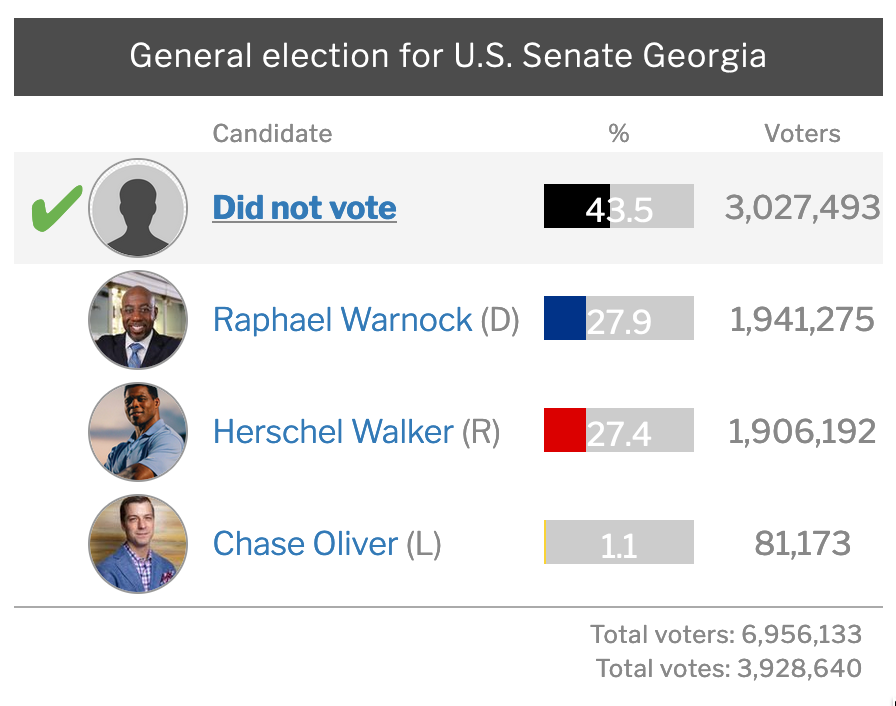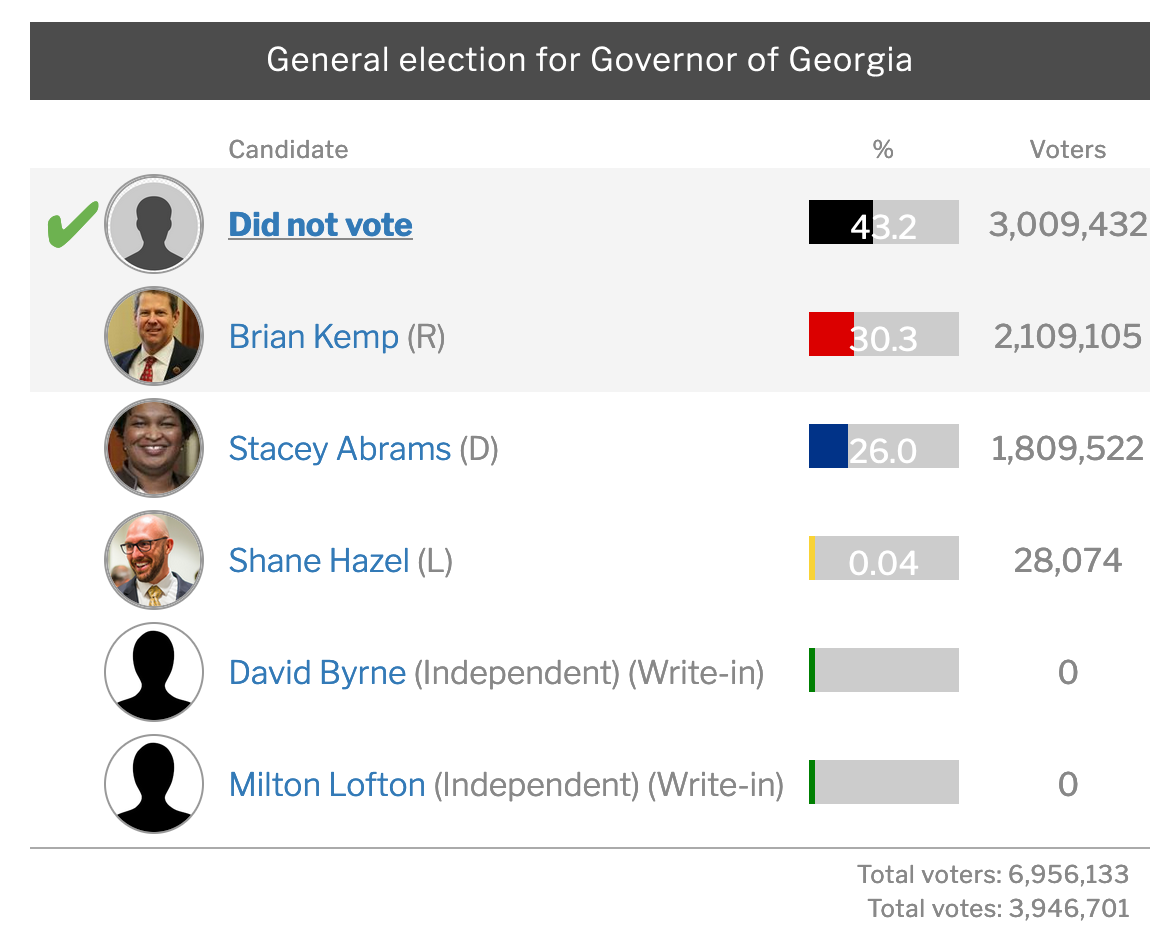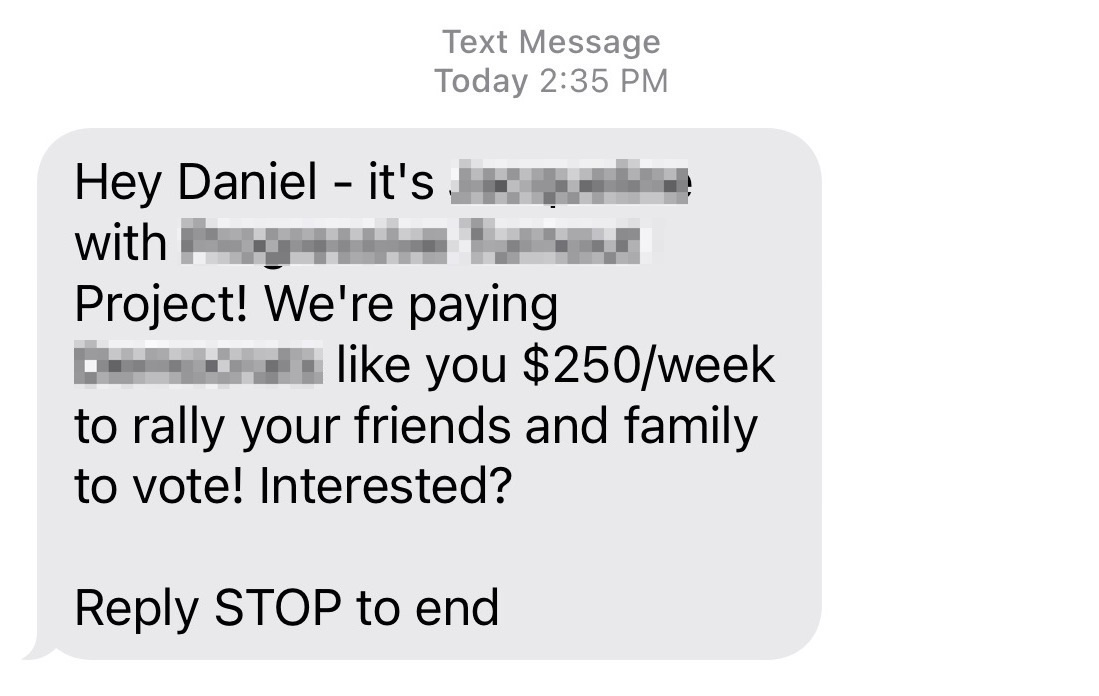Published by Dan Cunning on Nov 15, 2022
2022 Georgia Election Results with non-voters
Filed under Politics
Political ads flooded Georgia for the entirety of 2022. They emphatically screamed the stakes were higher than ever, and Georgia voters showed up in record-setting numbers. Yet more eligible voters still chose not to vote than chose any particular candidate and, by political standards, it wasn't even particularly close.
I was curious what all the pretty graphics would look like if they showed voters instead of votes. After all, democracy means government of the people, and votes are just an imperfect abstraction for the people. But just how imperfect?
The Results
Eligible voters as reported by the Georgia Secretary of State Data Hub
Vote counts as reported by ballotpedia.org


What's my point?
Third-Party Voters
Including non-voters in the results reduces the blame normally thrust onto third-party voters for swinging the election. People vote for third parties to show support for certain ideas, platforms, and people which is a healthy use of democracy.
If you agree with a third-party candidate more than the big two's then vote for them and don't feel like it's a wasted vote. A drop in a bucket is more noticable than a drop in the ocean anyway.
Mandates are Impossible
Newly elected officials regularly say the results have granted them a mandate, that "the people have spoken", but the majority of people don't speak. A democratic mandate requires a large majority of the people, not the votes, and our current system simply never provides one.
Voter Turnout
Instead of trying to convince Republicans to vote Democrat or vice versa, both sides just focus on getting the non-voters on their side to show up. A race to the bottom ensues because the best way to motivate people is to convince them that this is a battle between good (us) and evil (them).
The second most-effective way is starting a successful grassroot movement, but those are hard. It's easier to fake one by paying people. Here's a real text I received during the early voting period:

I've removed details indicating whether this was from the red team or blue team. I think I'm on this mailing list because of work I did years ago with a client that happened to have a lot of political customers. Paying people to herd votes to win today's fight is not good for the long term health of our democracy, but neither is fining people who fail to vote.
Conclusion
James P. Carse wrote that there are two kinds of games in life: finite and infinite. A finite game is played to win; there are clear victors and losers. An infinite game is played to keep playing; the goal is to maximize winning across all participants … The midterm elections are finite games. American democracy is an infinite game.
- Derek Thompson in What Moneyball-for-Everything Has Done to American Culture
In order to win the finite game both parties are sacrificing the infinite game. Enjoy the runoffs fellow Georgians!
If you would like to read my imperfect and currently impossible-to-implement idea for a democracy that is more likely to hear from all of its people, read my article:

I'm a Ruby on Rails contractor from Atlanta GA, focusing on simplicity and usability through solid design. Read more »